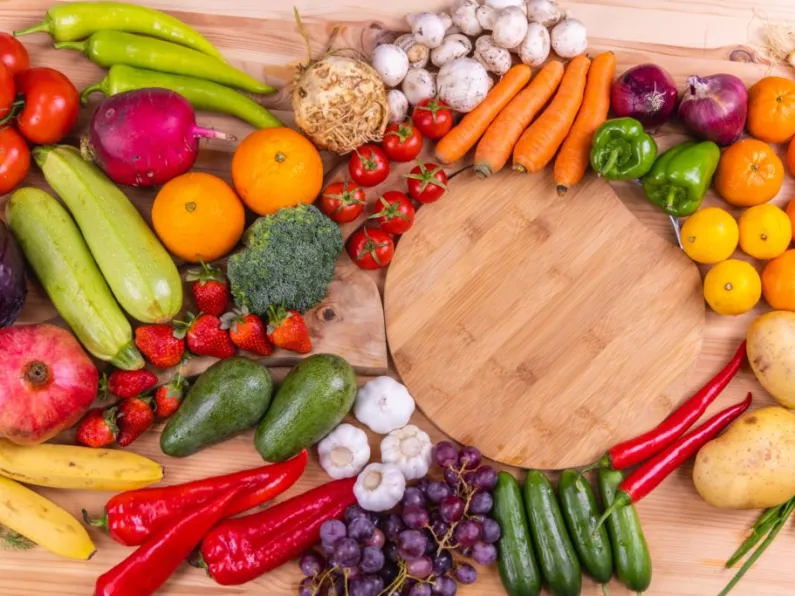Everyone requires energy and nutrients that you get from food for the growth, repair and maintenance of the body.
There are six types of nutrients; carbohydrates, fats, protein, water, vitamins and minerals.
These nutrients are divided into two main groups - macronutrients and micronutrients.
Macronutrients refer to the nutrients that are required in large amounts daily and they also provide energy in the form of calories.
These include carbohydrates, protein and fats.
Water can also be considered a macronutrient as it is needed in large amounts to assists with many of your body's functions, however, it does not provide the body with energy.
The lowdown on micronutrients
Micronutrients are needed in small amounts daily.
They include vitamins and minerals, and they do not provide the body with energy or calories.
They are important for many activities in the body such as maintaining a healthy immune system.
When considering healthy foods, think of food that will provide macronutrients; carbohydrates, proteins and healthy fats.
You also want to think about low calorie, high fibre options such as green vegetables.
5 basic healthy eating tips
Here are 5 basic tips to help you eat healthy.
- Choose fibre-rich carbohydrates: Fibre rich carbohydrate foods include, peas, beans, fruits, starchy vegetables and selected staples. When choosing peas and beans, prepare those that are fresh, frozen or dried; avoid those in the tin as they are high in sodium and not recommended, especially for persons with conditions such as heart disease. It should be noted that peas and beans are important sources of protein for persons who are vegetarian. Fruits contain carbohydrates due to the presence of natural sugars called fructose. They are a rich source of vitamins, minerals and fibre. When choosing fruit, select those that are fresh, frozen, dried or canned in water, or 100% fruit juice (avoid those canned in syrup). Fruits can also be consumed in the form of unsweetened or 100% fruit juice. Starchy vegetables are also good sources of vitamins, minerals and fibre. Yellow and other coloured vegetables such as pumpkin, carrots, beetroot and bodi are referred to as starchy, and thus also contain carbohydrates. The staples that are fibre rich are brown rice, rolled or steel cut oats, corn, ground provisions, breadfruit, green fig, plantain and whole wheat or whole grain flour products - bread, crackers and pastas.
- Have protein foods with every meal: Protein foods include animal products such as meat, chicken, fish, eggs, cheese, milk, yogurt and other dairy products. These foods contain some fat, so it's best to choose low fat options such as lean meat that includes chicken breast or leg, turkey and fish. Other foods in this group that are less healthy are ultra-processed meats such as ham, sausage, luncheon meats, salted meats and fish such as pigtail, smoked bones, salted fish and smoked herring. These are high in sodium and some contain cancer-causing agents. Vegetarians can have adequate protein by including meat substitutes such as soya and tofu, in addition to peas and beans.
- Use healthy fats: Use healthy fats to prepare meals and limit the use of other fats and oils. Healthy fats include avocado, olive and sesame seed oils, nuts and seeds. Other fats refer to butter, salad dressing, coconut milk and mayonnaise. A pro tip: Add seeds and nuts to your cereals, yogurt, smoothies and fruit, to boost your intake of healthy fats and also protein.
- Have cooked and raw green vegetables with every meal: Green vegetables are low in calories, high in fibre and good sources of vitamins and minerals, and as such they should be included as part of a healthy diet. Choose a variety of vegetables such as spinach, patchoi, bhagi, ochro, lettuce, cucumber, cabbage, broccoli, and cauliflower. It is recommended to eat both raw and cooked vegetables with every main meal – breakfast, lunch and dinner.
- Drink water instead of sugar-sweetened beverages: The general recommendation is to have 8 to 10 cups of water per day. Choosing water infused with fruits, vegetables or herbs is recommended instead of having flavoured water that has added sugars. Replacing sugar-sweetened beverages such as juice and soda with water is a great way to ensure you drink adequate water daily.









